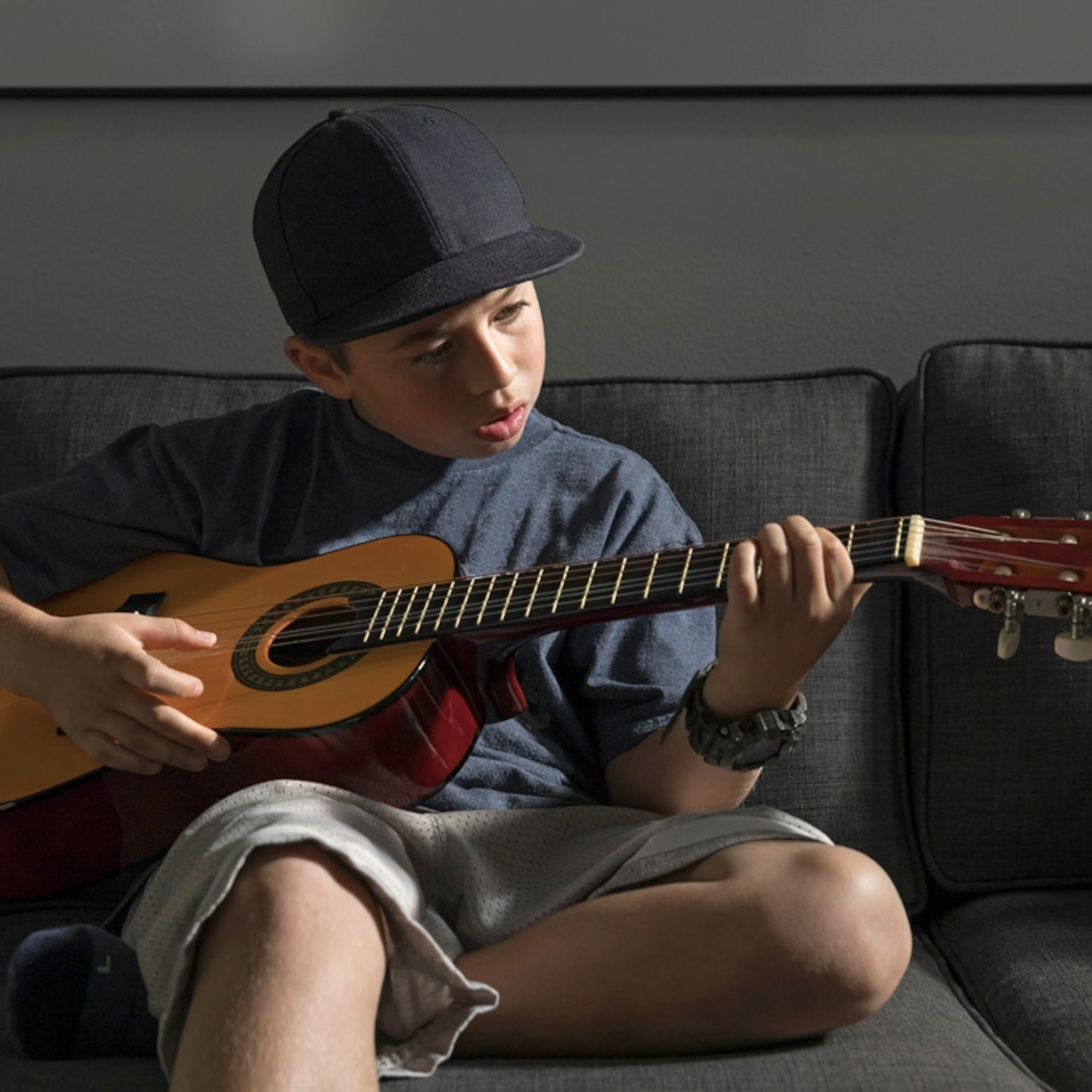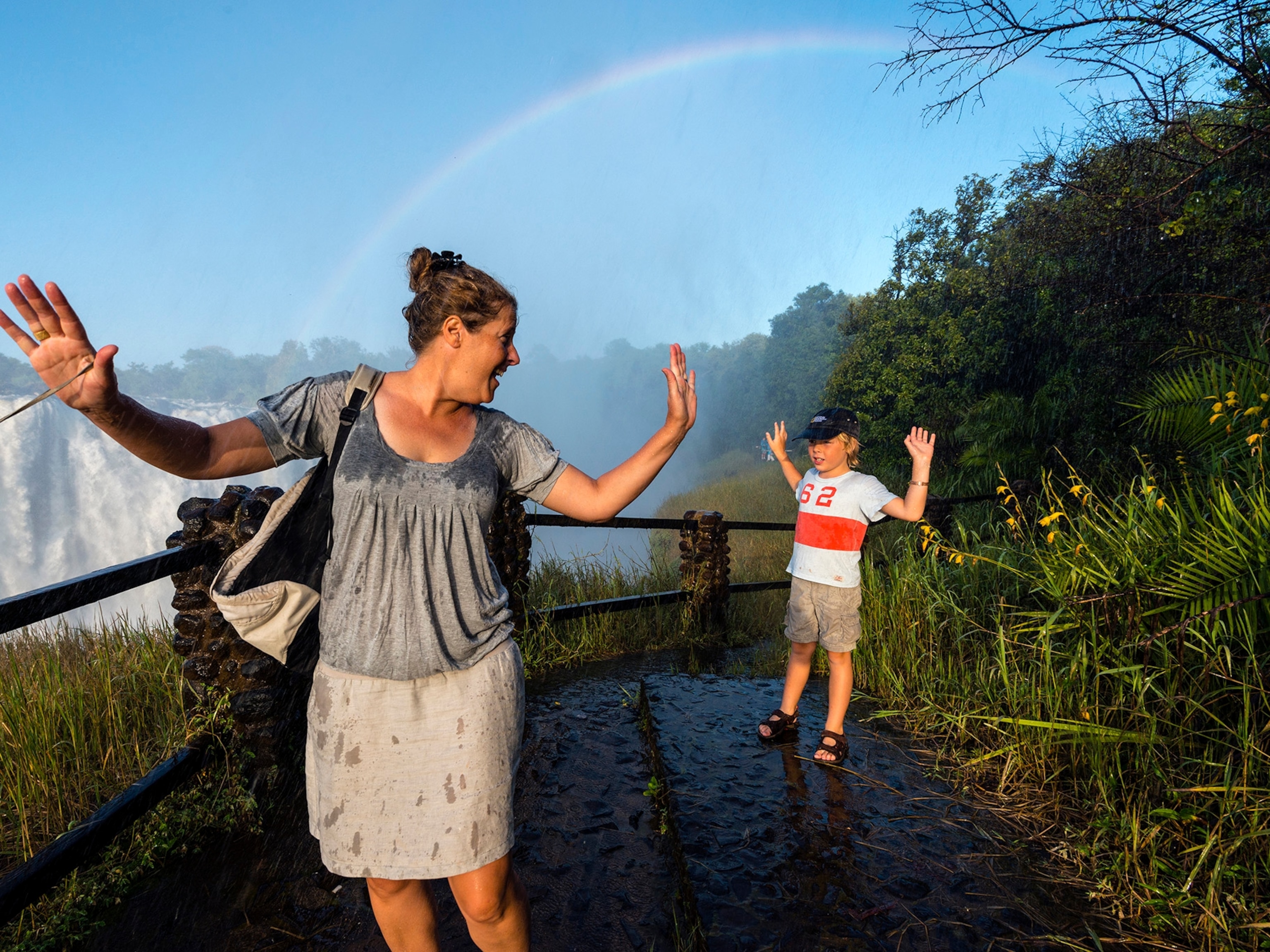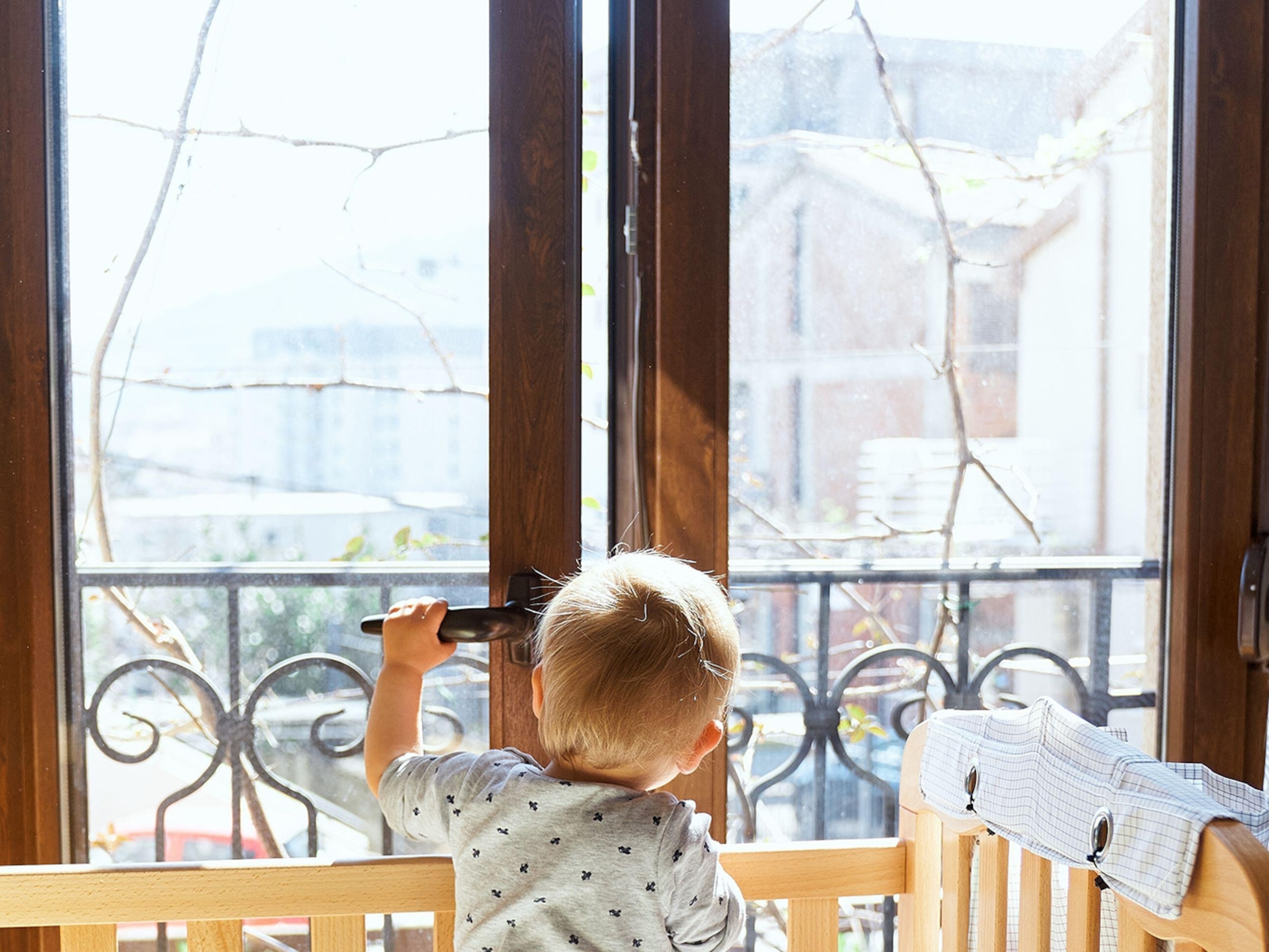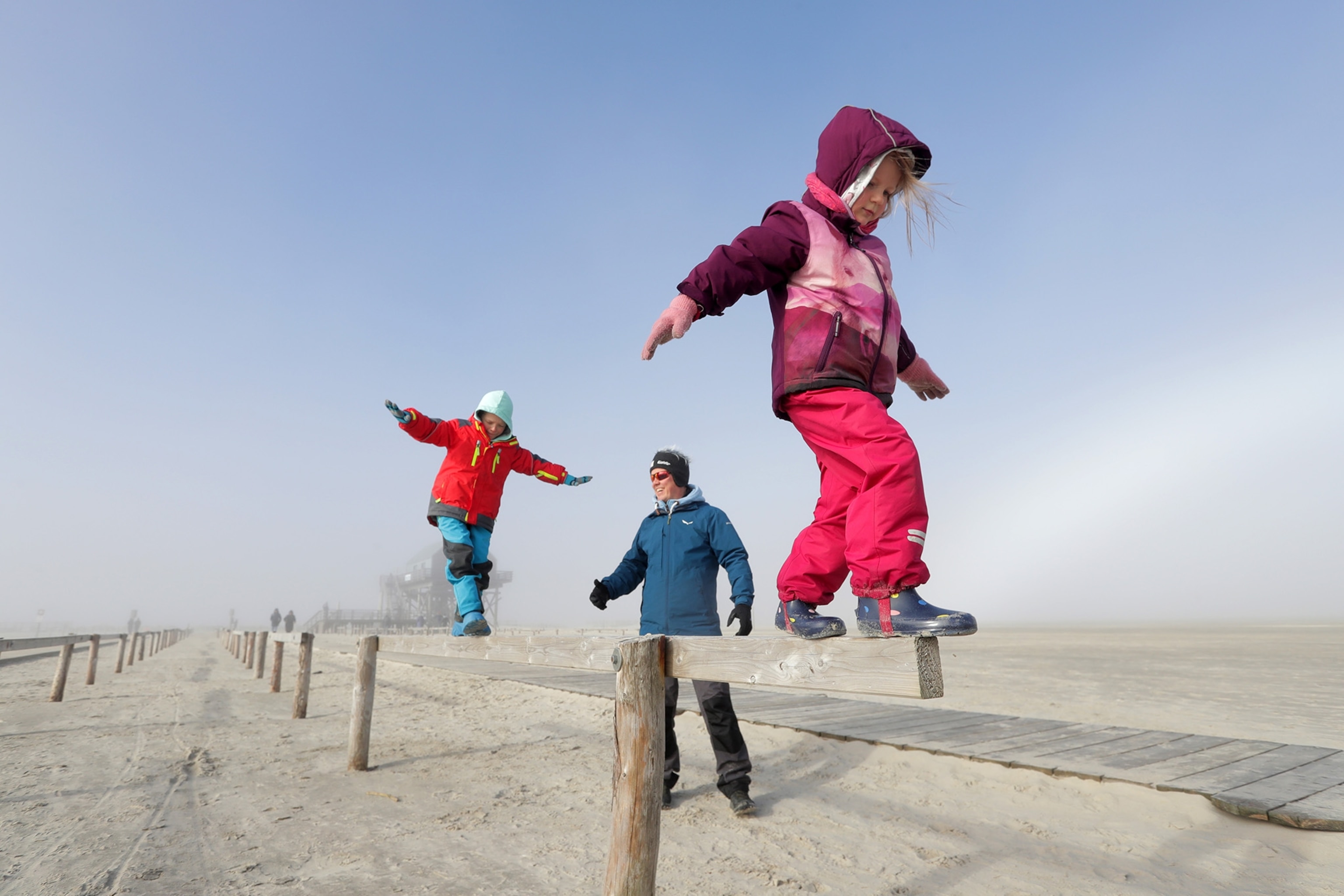
How does your parenting style affect your kid? Here’s what experts say.
From gentle to lighthouse parenting, the right parenting style could improve your child's well-being.
We are living in an age of metaphorical parenting. First it was tiger parenting. Then helicopter parenting, snowplow parenting, and free-range parenting became trends. Now, gentle parenting is having an extended moment.
But many parents may wonder: Do these parenting styles actually make a difference to a child’s development and future well-being?
“Parents are eager for answers and these messages become seductive on social media,” says Annie Pezalla, a developmental psychologist and visiting assistant professor of psychology at Macalester College in St. Paul, Minnesota. As a culture, “we’re becoming increasingly prescriptive about what to say or do or not do with the mentality that we could screw up our kids if we say or do the wrong thing,” she says.
(How can you help your kid flourish? Experts say to help them find "flow.")
Scientists have long wrangled with the question of how your parenting style affects your children. In the 1960s, psychologist Diana Baumrind identified three research-based approaches to parenting: authoritarian parenting, which involves strict rules, high expectations, and often harsh discipline; authoritative parenting, which is characterized by a close, nurturing relationship and guiding kids to meet high standards; and permissive parenting, which is characterized by warmth and few rules or expectations as kids navigate situations on their own. Later, a fourth style—neglectful (or uninvolved) parenting—was added to the mix.
The problem with these original characterizations is that “people cannot relate to those words,” says Kenneth Ginsburg, a physician and founder and program director of the Center of Parent and Teen Communication at Children’s Hospital of Philadelphia. “If you’re going to help parents know what to do and what to say, you need a new name.”
Which is how these new metaphorical parenting styles came to be.
In contrast to the traditional parenting styles, these newer ones don’t have as much research behind them—and they can mean different things to different people. Here’s what experts say about six of the newer parenting styles and their potential consequences for kids.
Gentle parenting
Known for prioritizing compassion, warmth, and respect, gentle parenting is an approach that has gained popularity in recent years. A major hallmark of this style is the focus on fostering a strong bond between children and their parents.
“It involves approaching parenting with attunement—being able to look at things through a child’s perspective,” says Sarah Bren, a licensed clinical psychologist and cofounder of the Upshur-Bren Psychology Group in Pelham, New York. Depending on how boundaries are set and discipline is handled, it can look a bit like authoritative or permissive parenting, experts say.
(Boredom can actually help kids reach their creative potential. Here's how.)
“Kids do well when they have warmth and discipline,” Pezalla says, but the gentle parenting style can be hard for parents to sustain. A study led by Pezalla published in a 2024 issue of PLoS One found that one-third of those who identified as “gentle parents” expressed doubts about their parenting abilities and experienced feelings of burnout. Whether this parenting approach has a better effect on kids than others hasn’t been well studied yet.
Snowplow parenting
Parents who adhere to snowplow parenting—which is also called lawnmower parenting or bulldozer parenting—often try to clear obstacles out of a child’s path. The parents’ intentions may be good—they don’t want their kids to struggle or feel distressed—but this isn’t realistic because challenges are an inherent part of life.
As a parent, “you want kids to handle adversity or conflict with your support and guidance to help them build resilience,” says Bren. If you regularly remove obstacles from their path because you’re afraid your child can’t handle them, it can become a self-fulfilling prophecy, Bren adds.
This is largely a fear-based approach to parenting—and it can backfire: Research has found that when parents are anxious about potential threats their children may face in the world, that anxiety can be transmitted to the kids, contributing to their own anxiety and an intolerance of uncertainty.
Helicopter parenting
While the term “helicopter parenting” refers to parents who hover over their children, it also means being controlling and overprotective, ready to jump in to help at any moment.
But much like with snowplow parenting, “this micromanaging doesn’t help kids learn to pivot, navigate bumps in the road or develop resilience,” says Michele Borba, an educational psychologist based in southern California and author of Thrivers: The Surprising Reasons Why Some Kids Struggle and Others Shine. As a result, “the child becomes dependent and you rob them of agency.”
(Nearsightedness is skyrocketing in kids. Sunshine can help.)
In addition, research has found that helicopter parenting by mothers has been linked with greater alcohol use among their teenage daughters. (To be clear: This study showed a correlation between helicopter parenting and teens’ alcohol use; it didn’t prove causation). And a study in a 2024 issue of Frontiers in Psychiatry found that helicopter parenting was associated with more depression and lower physical self-esteem among college students.
Free-range (or panda) parenting
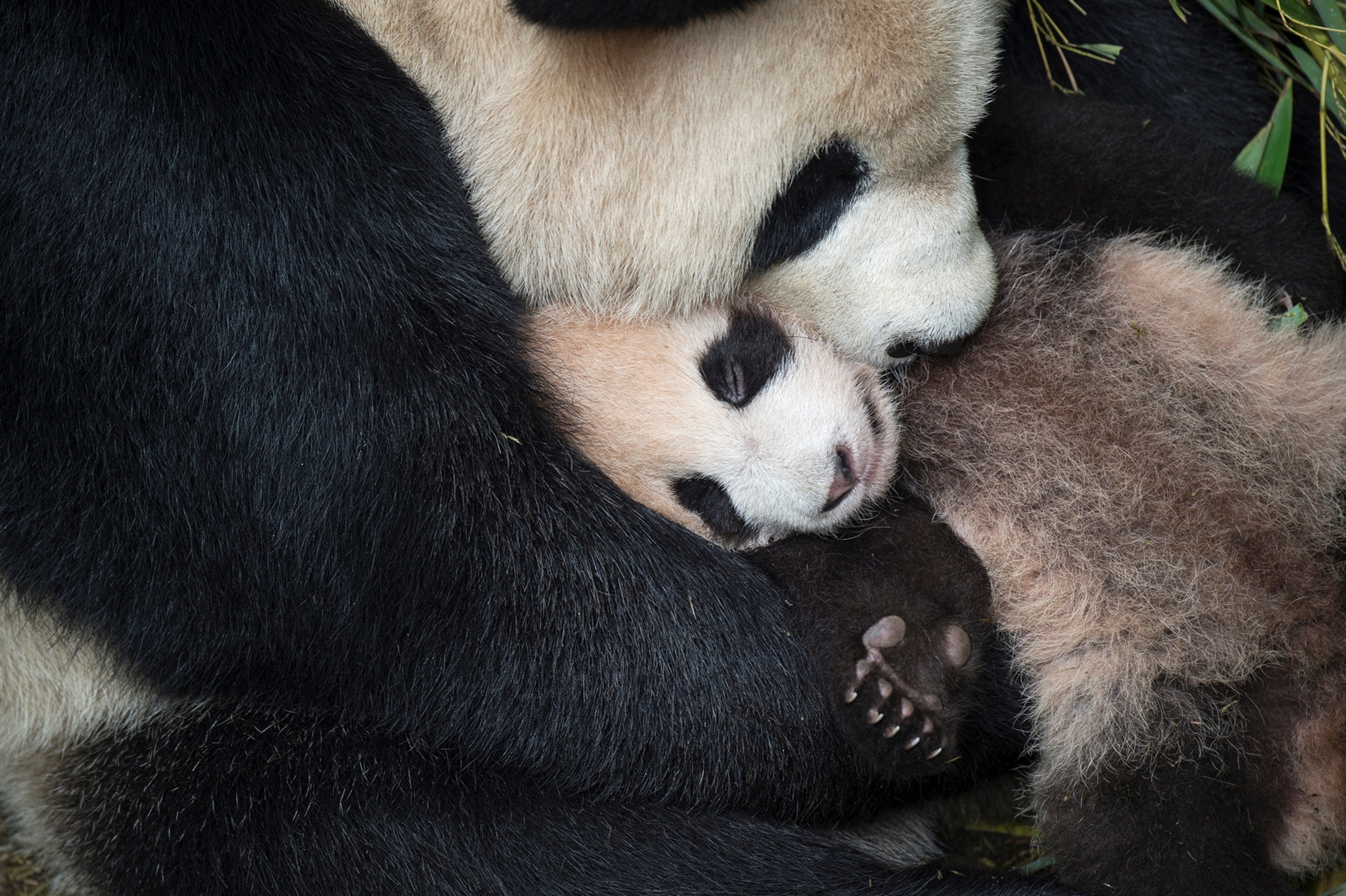
The opposite of helicopter and snowplow parenting, free-range parenting (a.k.a., panda parenting) emphasizes kids’ independence and freedom.
On the upside, this style can help kids develop self-reliance and confidence. It “allows kids to be kids and go off and do their own thing,” says Bren.
But the concern is that kids may end up with too much freedom in areas of life that they’re not ready to handle. That’s why it needs to be based on what a particular child is capable of, Borba says, and there needs to be guidance or “scaffolding,” as she describes it, to help them stay safe. “You need to keep in mind that our children are having different childhoods than we had,” Borba adds. “They’re faster-paced and more fear-based, and kids are digital natives.”
Nevertheless, some research suggests that encouraging a child’s independent mobility—defined as the freedom “to travel around their neighborhood or city without adult supervision”—is linked with better physical health and psychological well-being.
Tiger parenting
While we don’t hear about it much these days, tiger parenting still goes on—and has by now been more widely researched than many of these other parenting styles.
Popularized in 2011 with the publication of Amy Chua’s memoir Battle Hymn of the Tiger Mother, tiger parenting takes a strict, demanding approach to raising kids, with high expectations and standards and lower levels of emotional support. “It’s resumé- driven and it pushes the child too much in terms of the parents’ goals for the child instead of what drives the child based on who they are,” says Borba.
Research has found that tiger parenting is associated with higher stress responses, as measured by cortisol levels, in kids. What’s more, children who are raised with tiger parenting are more likely to develop anxiety, as well as depressive symptoms and a greater sense of alienation from their parents, according to other studies.
Lighthouse parenting
One of the newest parenting styles on the block, lighthouse parenting, a term coined by Ginsburg, lies in the middle ground—it’s not as strict or controlling as tiger parenting but it’s not as hands-off as free-range parenting either.
With lighthouse parenting, the idea is for parents to offer guidance and a consistent source of support from the shoreline, while allowing kids to venture offshore to navigate the waves. “It’s staying where you are [as a parent]—it’s not moving the lighthouse closer and closer to the child,” says Borba. When parents do dive in, it’s because they want to protect their kids from true danger; not because they want or need to control them, Ginsburg notes.
“While the name is new, it really is about how to apply what we’ve learned from balanced parenting, which is authoritative parenting,” says Ginsburg, author of the forthcoming book Lighthouse Parenting: Raising Your Child With Loving Guidance for a Lifelong Bond. “If parents serve as loving guides and set appropriate boundaries, kids turn out best and their relationships are the strongest.”
Indeed, research has found that authoritative parenting, by any name, is linked with greater academic achievement and higher self-efficacy, as well as higher confidence and better emotional self-regulation, among kids and teens. “If you want a child who will succeed and be well-adjusted, you want an authoritative style,” Borba says.
The characteristics of effective parenting
Metaphors and monikers aside, certain characteristics are essential to effective parenting. The first is to create a secure style of attachment with your child, says Bren. “The ultimate question is: Do they feel safe, seen, and soothed by me enough to feel secure with me?” she explains.
To that end, having emotional attunement, along with warmth, structure, and patience are important, Borba says. Research suggests that parents’ emotional availability may benefit a child’s neurobiological functioning and development.
It’s also important for a parent to be able to see the world through their child’s eyes, while helping them feel a sense of individuality and comfort with all their feelings. These are hallmarks of being loved unconditionally.
While consistency in parenting is important, Ginsburg says that flexibility is, too: “What changes is the level to which you give guidance. The goal is to foster interdependence and the ability to thrive.”
Another perk: These balanced parenting qualities can help foster strong bonds between parents and children. “When you parent with loving guidance,” Ginsburg says, “your child is going to want you in their life forever.”

